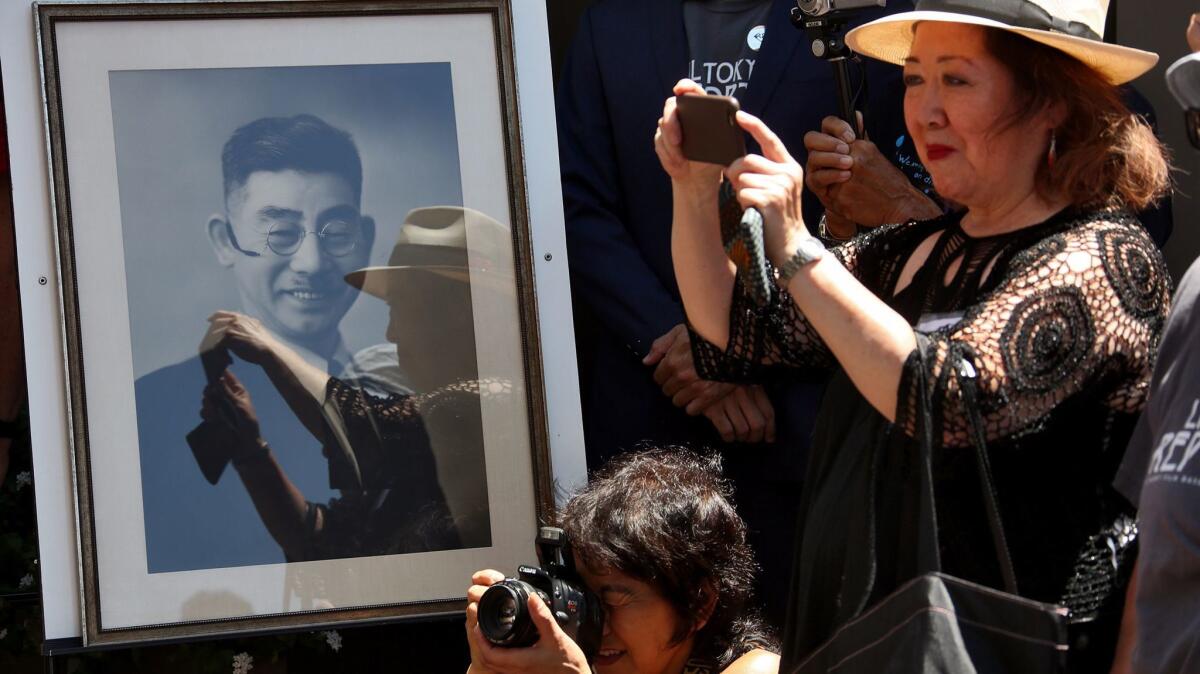Sei Fujii was denied a law license because of his race. California’s top court has granted him one, 63 years after his death

A Japanese immigrant who graduated from USC law school but could not practice because of his race received a license posthumously Wednesday from the California Supreme Court.
The state’s highest court decided unanimously to grant bar admission to Sei Fujii, who died in 1954 after working for decades to help other Japanese Americans in Southern California.
“Fujii’s work in the face of prejudice and oppression embodies the highest traditions of those who work to make our society more just,” said the order, issued in response to a motion by the Little Tokyo Historical Society and the Japanese American Bar Assn.
The state high court granted a similar motion in 2015 on behalf of a Chinese immigrant who had been barred from practicing during his lifetime under a law that prohibited citizenship for members of the “Mongolian race.”
Fujii immigrated to the U.S. in 1903 and received a law degree eight years later. California law barred legal licenses for immigrants at the time unless they were eligible for citizenship. Federal law limited naturalization to “free white persons” and those of African descent.
“Despite his unjust exclusion from the legal profession, Fujii undertook extraordinary efforts to apply his education and talents to advancing the rule of law in California,” the court order said.
After federal law changed in 1952, Fujii became a citizen at age 73. He died of a heart attack 51 days later.
Though unable to obtain a law license, Fujii used his legal education to challenge discriminatory laws.
After the flu epidemic of 1918, when Japanese American doctors were barred from admitting their patients to hospitals, Fujii helped five Japanese physicians win a court ruling that allowed them to buy land for a hospital to serve Japanese Americans.
Fujii later was among the more than 100,000 people of Japanese ancestry — most of them American citizens — sent to internment camps during World War II.
While they were away, California used the Alien Land Law, which prohibited property ownership for noncitizens, to take away the land of many internees.
Fujii, hoping to end the law, bought a small parcel of land in Los Angeles after the war. The state tried to confiscate his property under the Alien Land Law, and Fujii’s case led to a landmark decision by the California Supreme Court.
The court, deciding the real purpose of the Alien Land Law was to eliminate competition by Japanese immigrant farmers, found it violated the 14th Amendment. Three justices dissented.
“We do not know what more Fujii might have accomplished had he been admitted to the bar, or what others in Fujii’s position might have accomplished had our laws not wrongfully excluded or deterred them from becoming lawyers,” the court said.
Twitter: @mauradolan
More to Read
Start your day right
Sign up for Essential California for news, features and recommendations from the L.A. Times and beyond in your inbox six days a week.
You may occasionally receive promotional content from the Los Angeles Times.







